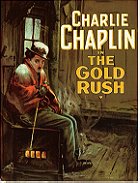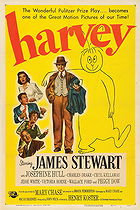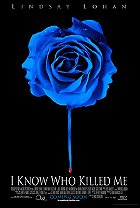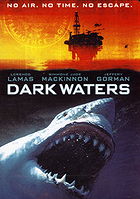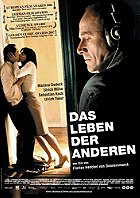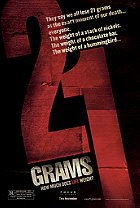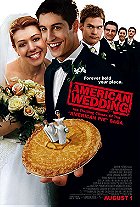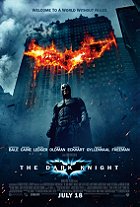Gerben Kuipers: "How do you know all this?"
Ellis de Vries: "Because I was set up myself! Because I've seen my entire family be slaughtered!"
Dutch director Paul Verhoeven returns to his culture and heritage with Zwartboek (known more universally by its English title Black Book): this film is a passionate, invigorating war drama as well as an electrifying World War II espionage thriller. Verhoeven, who co-wrote the screenplay over the course of 20 years with collaborator Gerard Soeteman, illuminates a particularly overlooked aspect of WWII: the war in Holland, and the devastating effects of the Nazi soldiers. After Verhoeven spent several years directing Hollywood films such as Starship Troopers, Total Recall, RoboCop, Showgirls and the disastrous Hollow Man among numerous others, the director opted to return to Holland with a budget of 16 million Euros to replicate a shocking component of Holland's history. Black Book focuses not merely on the Nazi occupation in Holland: its key story concerns a young Dutch woman who joins the Resistance towards the concluding months of the war. It's a tale of audacity, integrity, love, revenge and betrayal that masquerades as an entertaining spy serial in the backdrop of the war in Holland.
Dutch singer Rachel Stein (van Houten) is a Jewish woman hiding in a rural sector of The Netherlands during the 1940s. Her hiding place is abandoned when German bombers cast their devastating power over that region. With the Nazi soldiers further expanding their Holland occupation, Rachel wishes to escape across into liberated territory. She joins a group of Jewish refugees for a river crossing, but their boat is soon ambushed and Rachel emerges as the soul survivor. Rachel is fast running out of options, and joins the Resistance in The Hague. Rachel is forced to change her name to Ellis de Vries, and becomes entangled in the conflict against the Nazis when she consents to perform espionage work in order to infiltrate the regional Gestapo headquarters. In order to complete this assignment she must become involved with Nazi officer Ludwig Müntze (Koch). Driven by the hope of avenging her murdered family, Ellis (a.k.a. Rachel) is forced to navigate a minefield of deception and consequently becomes an enemy to both sides. The underlying plot relates to an untold story of World War II where the distinctions concerning good and evil become distorted by the density of human nature.
The title of Black Book can be interpreted in one of two ways. By saying "black book" one could be referring to something sinister, hateful or profoundly evil. Alternatively, one of the characters possesses a collection of pertinent information that can lead to the true villain written down in a black notebook. Draw your own conclusions.
Black Book is an extremely riveting war thriller that is competently crafted. Although made on a reasonably low budget, all the money is employed resourcefully for a more effective result. The replication of Holland in the 1940s is both faithful and authentic. The filmmakers lovingly recreate the era and its atmosphere with impressive sets, scenery and costumes. Director Paul Verhoeven provides the film with its realistic edge. His lens is complimented with enthralling visuals that appear to have the same polish and sheen as a Hollywood production. In fact, the visuals are so impressive that you won't realise the budget constraints and you'll wonder why it missed a more mainstream release. Some of the films faults, however, lie in the screenplay. Despite the 20-year period utilised for scripting, there are some unfortunate problems. At times the dialogue seems overly melodramatic and unnecessarily cheesy, while other times stilted. Also, there is far too much relentless nudity and scenes of sensuality. The central female spends most of the film topless, and this is distracting as well as awkward at times. The nudity is gratuitous and occasionally very unnecessary.
For a film made on a modest budget, the acting is first-rate! Carice van Houten steals the show with her incredible performance as the title character of Rachel Stein. She's emotionally-charged and infused with passion. With performances as terrific and powerful as this, she should easily reach the position of a well-paid Hollywood actress. Sebastian Koch is perhaps best remembered for his role in the German film The Lives of Others that was also released in 2006. Koch is memorable, potent and credible. Both he and van Houten are supported by a solid cast surrounding them. Above all, with flawless visual effects and outstanding direction there are simply no technical faults to be pointed out.
In spite of a few minor script flaws and constantly feeling a tad disjointed, Black Book is an enormously effective World War II espionage thriller that is guaranteed to entertain. With Verhoeven at the helm, you can certainly expect a tremendous amount of graphic violence. To cement his anti-war message, the realism in the violence is sometimes shocking to witness. The film is also permeated with adult themes concerning suicide and plainly the malevolent nature of mankind. Black Book contains marvellous visuals that are simply engrossing, and spectacular to observe. For a war drama made on a modest budget with virtually no globally big name actors present in the cast, the filmmakers succeed in their objective. It informs the intended audience of the period and the devastating happenings that the Dutch were forced to endure. On top of this, the film moves at an intense pace with very few dull moments. The characters are developed efficiently, plus there's a great balance of action and absorbing drama.
Black Book is an emotionally-straining, expressive, seductive and violent movie that I certainly recommend.
8.4/10
 Login
Login
 Home
Home 183 Lists
183 Lists 1671 Reviews
1671 Reviews Collections
Collections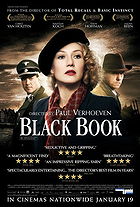
 0 comments,
0 comments, 